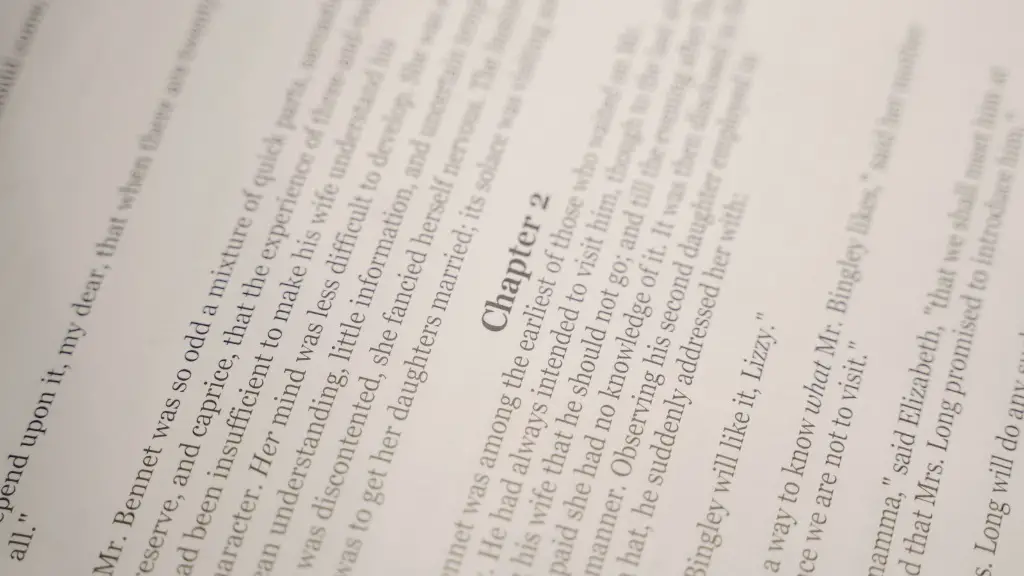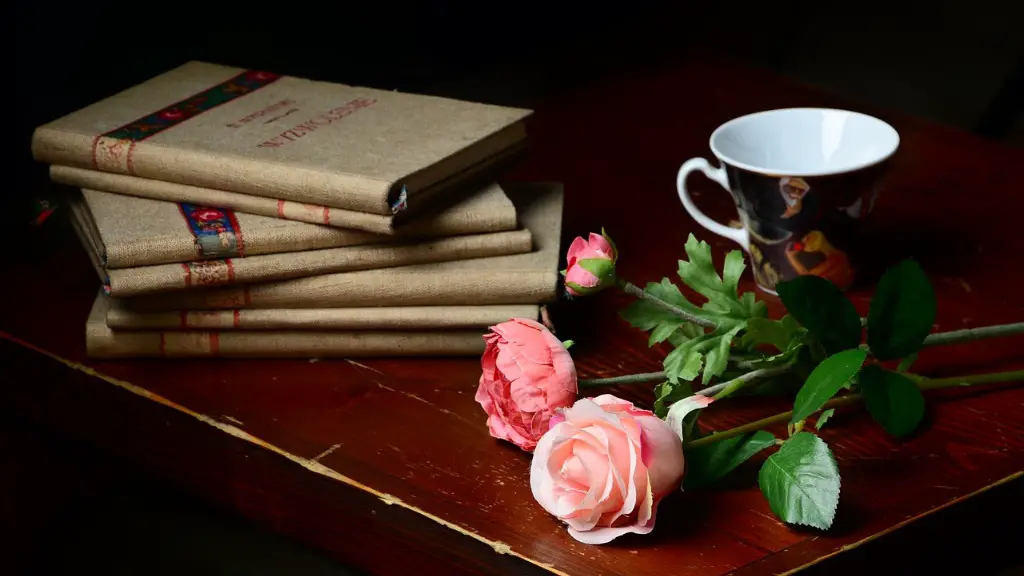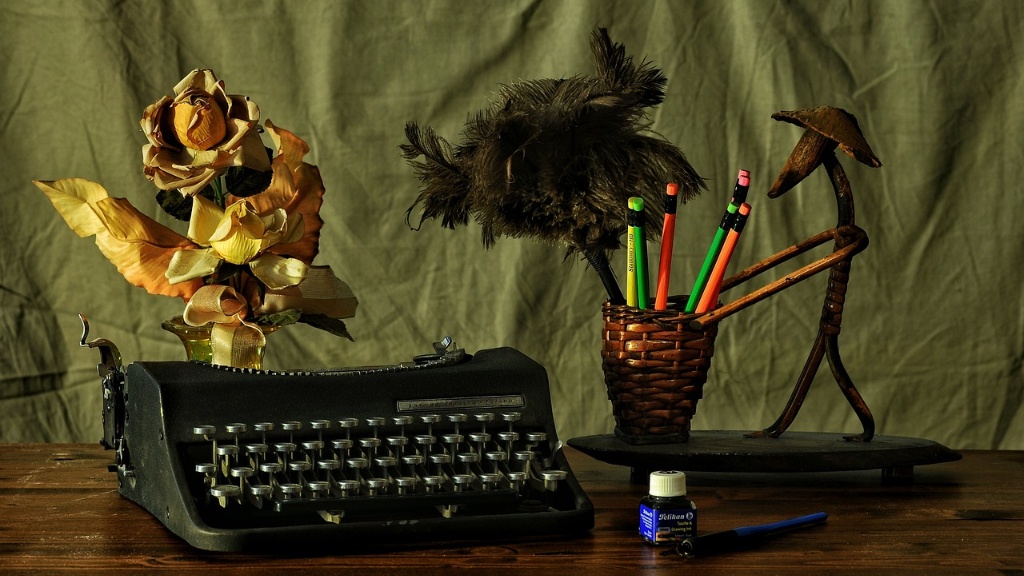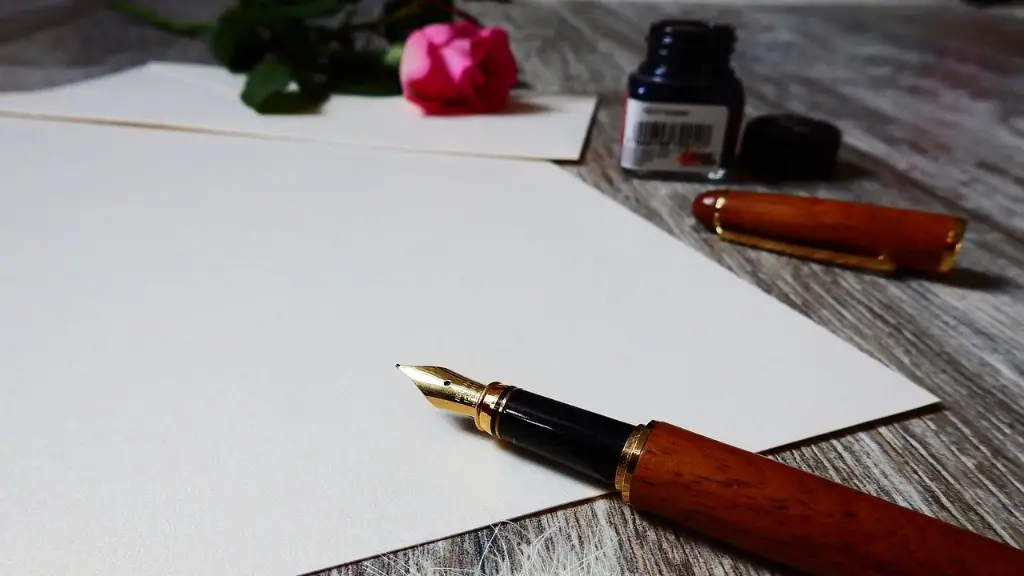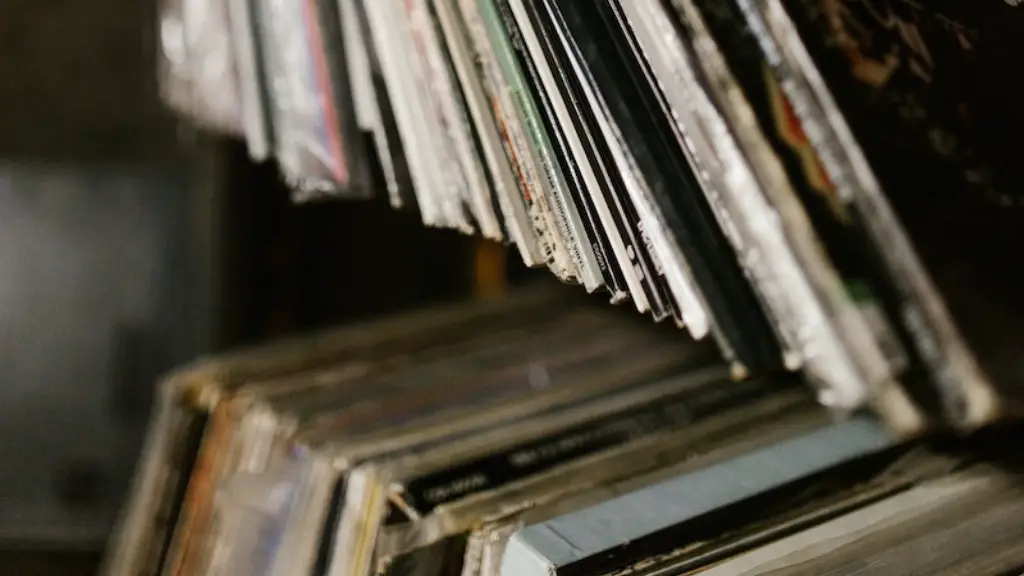Origins of Poetry
Poetry is a form of expression that transcends language, time, and culture. It has been around for centuries and is still prevalent today. But when exactly did it all start? Tracing the history of poetry can be difficult due to its varied forms, but there is some consensus that the earliest known forms of poetry originated in ancient societies.
The earliest forms of poetry can be traced back to early hunter-gatherer societies of the Neolithic era. At this time, people began to express themselves verbally, often in the form of chants or songs, which were typically used to tell stories, pass on knowledge, or pay homage to their gods. This tradition was part of the oral storytelling tradition that served to keep culture alive and passed down from generation to generation.
As more complex societies developed, so did poetry. We can find evidence of this in ancient epics, such as the Epic of Gilgamesh, written in the 18th century BCE in ancient Mesopotamia. This epic poem would be one of the first known examples of written poetry, and is thought to be inspired by the oral tradition of earlier societies.
Poetry also emerged in ancient Egypt, with the composition of the Egyptian Book of the Dead and the Great Hymn to Amon that dates back to the 15th century BCE. In Ancient Greece and Rome, poets such as Homer and Virgil wrote epic poems that still influence literature and culture today. In China, Confucius is credited with compiling the earliest examples of poetry during the 6th century BCE.
Despite the long history of poetry, it is difficult to pinpoint exactly when it began to be written down. However, the evidence suggests that the earliest examples of written poetry go back thousands of years and have played an integral role in the history of humankind.
Structure of Poems
The structure of poetry has also developed over time. Ancient poetry was often composed in verse form, which is a patterned arrangement of language that creates a musical effect when read aloud. Traditionally, poetry is composed in four-line stanzas known as quatrains. These quatrains are further divided into two lines, or couplets, which are connected by words, images, or concepts.
Today, the structure of poetry has evolved to become more flexible, with poets experimenting with different lines, forms, and styles. However, it is still rooted in the traditional four-line quatrains. The structure of poetry is also determined by its subject matter, as different themes may require different forms of expression. For example, a love poem may be structured differently than an ode or elegy.
No matter the structure, poetry is a powerful form of expression that can be used to express any emotion or idea. It is an excellent way to express thoughts and feelings that cannot be expressed using words alone.
Evolution of Poetry
While the structure of poetry has remained largely unchanged, the content and themes of poetry have changed significantly over the centuries. In the modern era, poetry is not limited to epic tales or stories about love and loss, but can take any form imaginable. Poets today can write about any subject from the mundane to the political and everything in between.
The evolution of poetry has been driven by increased access to literature and culture, as well as advances in technology. Today, people can easily access a wide variety of written materials and draw inspiration from any number of sources. The internet has also opened up poetry to a wider audience, allowing poets to share their work with the world.
In addition to new forms of expression, modern poetry has also seen an increased focus on experimentation. Poets today are more likely to experiment with sound, structure, and form, often pushing the boundaries of traditional poetry. This has resulted in a greater variety and richness of poetry, allowing poets to explore new ways of expressing themselves.
Cultural Significance of Poetry
Over time, poetry has developed into an art form that is capable of expressing a wide range of emotions and ideas. It has also become an integral part of culture, with many cultures drawing on poetic expression to communicate and express their values and beliefs.
Today, poetry is a powerful form of expression that is widely accepted and appreciated in cultures all over the world. It is seen as a way for people to express their inner thoughts and feelings, as well as a way to share knowledge and stories. Poetry is also used as a form of protest, with poets utilizing their art to challenge established norms and ideas.
In addition, poetry has been used to create a sense of community and solidarity. Many poets have used their work to unite people in times of struggle or crisis, providing a powerful platform for people to share their stories and support one another.
Politics of Poetry
Poetry has a complex relationship with politics, as it is often intertwined with broader themes and ideologies. In many cases, poets use their work to confront and challenge societal norms and to express a political message. Historically, poetry has been used to criticize oppressive regimes, to express dissent, and to support progressive causes. This has made poetry a powerful tool for social and political change.
At the same time, poetry has also been used to advance particular political agendas. In some cases, poets have been employed by governments to further their propagandistic objectives and to promote particular ideologies. This has made poetry a tool for manipulating and controlling public opinion.
In today’s world, poetry has taken on a new role in politics. It has become a platform for discourse, debate, and social change. By using their art to express their views, poets can challenge existing political systems and policies and promote progressive causes.
Modern Poetry
In the modern era, poetry has become an increasingly popular art form. There are now numerous platforms for poets, both online and in print, which allow them to reach a global audience. In addition, the recent proliferation of spoken word events has made it easier for poets to share their work with a wider audience.
Despite increased acceptance of poetry in popular culture, there are still misconceptions about what poetry is and what it can be used for. Many people still view poetry as a stuffy, inaccessible form of writing, when in reality it is often a powerful force for self-expression and protest.
At its core, poetry is a tool for understanding and expressing the human experience. By utilizing their art, poets can evoke powerful emotions and insights that can help us to better understand ourselves, our society, and the world around us.
Impact of Poetry
Poetry has a long and storied history, and its influence can be seen in every part of our lives. Not only has it been used to express complex ideas and emotions, but it has also shaped culture and politics, and has been used to promote social change.
Though poetry has a long history and has evolved over the centuries, it is still a powerful and relevant form of expression. Despite the ever-changing landscape of the world, poets continue to push the boundaries of their art, creating new and exciting ways of expression.
The impact of poetry is immeasurable, as it has the power to transcend language, time, and culture. By using their art, poets can express ideas and feelings that cannot be conveyed using words alone, and can connect with people in a powerful and meaningful way.

